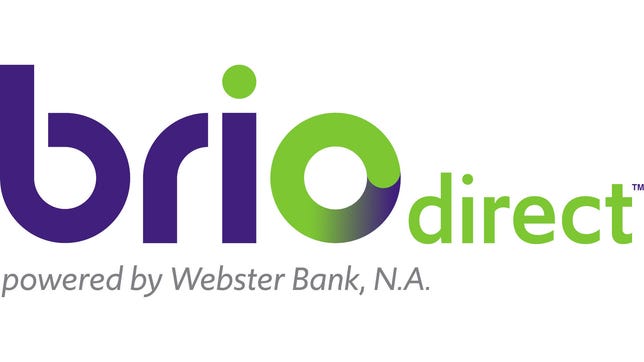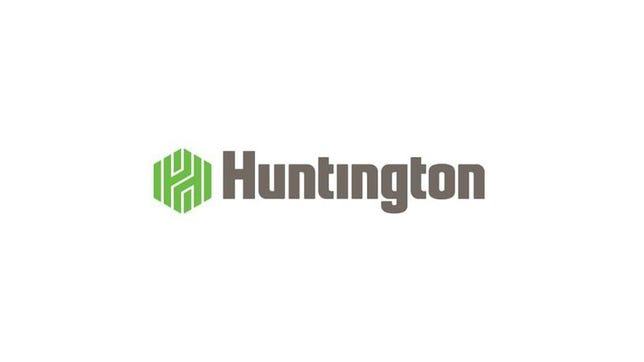[ad_1]
If you’re searching for safe places to park your cash, a certificate of deposit, or CD, should be a worthy consideration. CD rates have been steadily increasing over the past year, thanks to the Federal Reserve’s decision to raise interest rates. While those higher rates have spelled trouble for anyone trying to borrow money, they create great news for saving.
A traditional CD has some similarities with a savings account in that it earns interest and it comes with insurance protections if the bank or credit union fails. But there’s one big difference: When you deposit money in a CD, you agree to keep it locked up for a set period of time, or term. Banks and credit unions will offer a higher interest rate in exchange for not touching the money during the term. If, however, you need to access the cash before the CD term’s maturity, you could be in for some trouble as traditional CDs charge penalties for early withdrawals. (If fees and penalties scare you, consider no-penalty CDs.)
CDs have a wide range of maturity dates. If, for example, you open a five-year CD in November 2022, you agree to let the bank keep your money until November 2027. There are, however, CDs that don’t require too much of a time commitment. One of the shortest terms you’ll find is a one-month CD.
What is a 1-month CD?
Appropriately named, a one-month CD matures in just one month after opening the account. Open a one-month CD on November 15, and you can withdraw the money, plus your interest earnings, on December 15, or you can leave your money in the account and let it auto renew after the end of the term. The short-term horizon also means that banks and credit unions aren’t going to offer a high interest rate compared with one-year CDs (they’re more interested in customers locking up their money for longer periods, hence higher annual percentage yields, or APYs, for longer terms).
One-month CDs aren’t very common. Most banks and credit unions offer CDs that start with a three-month term. However, one-month CDs can be a helpful savings tool, with some financial institutions offering rates that can make it a good fit for your short-term financial needs. But you’ll need to think carefully about whether a one-month CD is a better fit for your financial portfolio than a high-yield savings account.
CNET’s picks for the best 1-month CD rates
Best 1-month CD rates
| Bank/credit union | APY | Minimum deposit |
|---|---|---|
| SchoolsFirst Federal Credit Union | 0.55% to 0.70% | $500 ($100,000 to qualify for top rates) |
| Zions Bank | 0.10% to 0.20% | $1,000 ($100,000 to qualify for the top rate) |
| BrioDirect | 0.05% | $500 |
| U.S. Bank | 0.05% | $500 |
| Huntington National Bank | 0.05% | $1,000 |
Note: APYs are as of Nov. 11, 2022. CNET’s editorial team updates this information regularly, typically biweekly. APYs may have changed since they were last updated and may vary by region for some products. It’s important to note that rates may vary by location and relationship. Be sure to ask a customer service representative to verify that you’re getting the most competitive offer before opening any new CD.
More details on the best 1-month CD rates

SchoolsFirst Federal Credit Union
SchoolsFirst Federal Credit Union
- APY: Tiered rates, starting at 0.55%
- Minimum deposit: $500
- Early withdrawal penalty: 30 days of interest on the amount withdrawn
Don’t be confused if you don’t see “certificate of deposit” on the SchoolsFirst Federal Credit Union website. Credit unions refer to CDs as “share certificates.” Regardless of the name, this is the top choice for a one-month CD thanks to its relatively high earning potential. However, membership in the California-based credit union is limited to certain current and retired professionals in the state who are involved in education.

Zions Bank
- APY: 0.10% (0.20% for deposits of $100,000 and above)
- Minimum deposit: $1,000
- Early withdrawal penalty: All interest that the principal would have earned for the full term
Headquartered in Utah, Zions Bank offers a range of CD terms between one month and five years. However, you’re better off opening an online savings account here; current rates for these accounts are 0.75%.

BrioDirect
- APY: 0.05%
- Minimum deposit: $500
- Early withdrawal penalty: One month of interest
In addition to its one-month CD, BrioDirect offers a range of savings products. If you’re comfortable locking your money away for longer, consider the bank’s promotional 12-month CD, which pays 4%.

U.S. Bank
- APY: 0.05%
- Minimum deposit: $500
- Early withdrawal penalty: One month of interest, plus a $25 fee
U.S. Bank is one of the biggest banks in the country. In addition to one-month CDs, the bank offers some alternative CD products, including a step-up CD that includes automatic increases to your rate every seven months and a trade-up CD that offers the option to lock in a higher rate when you think the time is right. The bank also has a promotional rate that pays 3% for an 11-month CD.

Huntington National Bank
- APY: 0.05%
- Minimum deposit: $1,000
- Early withdrawal penalty: Undisclosed
Huntington National Bank is headquartered in Columbus, Ohio. It offers a wide range of CDs with terms ranging from one month to six years. However, the standard rates are fairly low; even the six-year CD only pays a 0.10% APY, which is a paltry sum for keeping your money locked up for 72 months. There’s a bright spot for savers, though: Its 14-month promotional CD pays 3.30% APY.
FAQs
Why should I get a 1-month CD?
If you have a specific short-term savings goal in mind, a one-month CD can help you achieve it. The other reason to consider a one-month CD is to simply help establish some financial discipline. By making it harder to withdraw your money, you’ll be less likely to try to access the funds.
What happens at the end of the 1-month CD term?
Most CDs automatically renew, but you have a grace period where you can withdraw the funds before a new term starts. For example, at the end of the month, you might have a three-day window to decide whether to keep the money in for another month or take it out.
What are the fees and penalties associated with 1-month CDs?
Fees and early withdrawal penalties for one-month CDs vary depending on your bank or credit union. In most cases, you’ll wind up forfeiting the full month’s interest if you take out your deposit prior to the maturity date.
Can I lose money buying a 1-month CD?
CDs come with insurance protection from either the Federal Deposit Insurance Corporation or the National Credit Union Administration that protects your principal investment even in the unlikely event that the bank or credit union somehow fails in the next 30 days. The only way you could lose money is if you withdraw the funds before the maturity date.
What are the alternatives to a 1-month CD?
High-yield savings accounts, money market accounts and CD with longer terms are great alternatives to a one-month CD. You won’t be penalized if you need to make a withdrawal in the first 30 days, and you’ll likely be able to find a higher interest rate if you shop around. Some of the best high-yield savings accounts are paying more than 3% interest right now — a much better deal than a one-month CD. Additionally, you can look for no-penalty CDs. So, if you do need the money in a month, you won’t have to forfeit any interest.
Methodology
CNET reviews CD rates based on the latest APY information from issuer websites. We evaluated CD rates from more than 50 banks, credit unions and financial companies. We selected the CDs with the highest APY for six-month terms from among the organizations we surveyed.
Banks surveyed include: Alliant Credit Union, Ally Bank, America First Credit Union, American Express National Bank, Axos Bank, Bank of America, Bank of the West, Bank5 Connect, Barclays, BMO Harris, Bread Savings, BrioDirect, Capital One, CFG Community Bank, Citizens Access, Colorado Federal Savings Bank, Connexus Credit Union, Consumers Credit Union, Discover Bank, First Internet Bank of Indiana, First Tech Federal Credit Union, FNBO Direct, GO2bank, Golden 1 Credit Union, HSBC Bank, Huntington Bank, Lake Michigan Credit Union, LendingClub Bank, Live Oak Bank, M&T Bank, Marcus by Goldman Sachs, Merrick Bank, Nationwide (by Axos), Navy Federal Credit Union, NBKC, OneUnited Bank, Pentagon Federal Credit Union, PNC, Popular Direct, PurePoint Financial, Quontic Bank, Rising Bank, Salem Five Direct, Sallie Mae Bank, Santander Bank, Synchrony Bank, TAB Bank, TD Bank, TIAA Bank, Truist Bank, U.S. Bank, UFB Direct, Union Bank, USAA Bank, Vio Bank and Wells Fargo.
[ad_2]
